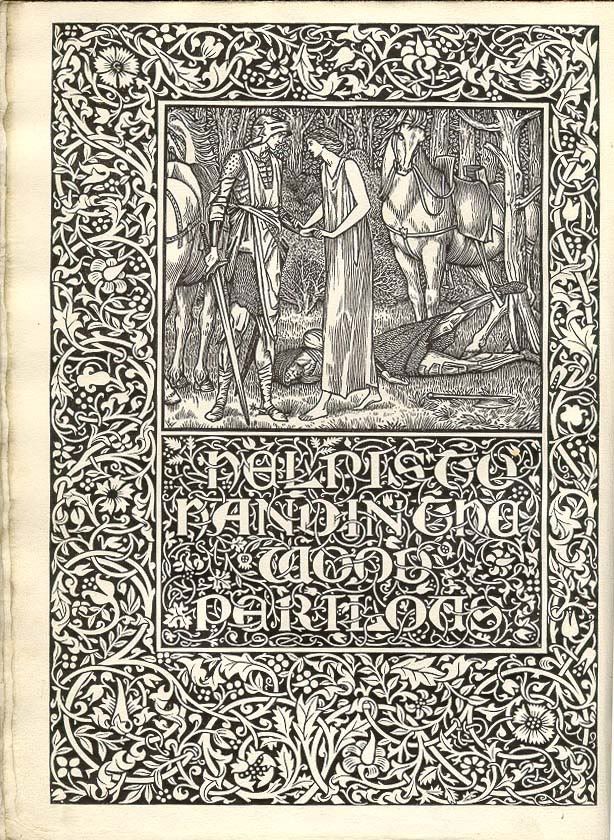
The Daily Telegraph printed an excellent essay a few years ago entitled "Tolkien Was not a Writer." As a huge fan of Tolkien's work, I was initially a bit put off by the title, but on closer inspection, I found it hard to disagree. As a kid, I found The Hobbit and Lord of the Rings difficult to read, though I soon realized the great payoff as the stories began to take on a new life in my imagination. Tolkien may not have been the world's greatest, but the power of his storytelling was (and is) incredibly compelling.
I think this is the case with a lot of great fantasy writers. Reading George MacDonald's Phantastes or William Morris' The Well at the World's End is tranporting--whether or not either of these stories would have had a shot at garnering a literature prize. These works have a deeply enjoyable, mythic quality that transcends most forms of literary criticism--something C.S. Lewis really appreciated about them.
In his essay "Toward a Rhetoric of Nineteenth-Century Fantasy Criticism," Bruce Edwards discusses C.S. Lewis' treatment of the writings of George MacDonald and William Morris. While Lewis recognized these authors' shortcomings (he once said "if we define literature as an art whose medium is words, then certainly MacDonald has no place in its first rank--perhaps not even in its second") he enjoyed reading their work, and sought to have it recognized for its contribution to the mythic tradition. Edwards argues that, unlike many critics, who attempt to "reclaim" literary works by forcing them into popular critical categories (Lewis hotly contested Freudian analysis of George MacDonald's writing), Lewis sought to "rehabilitate" the writings of Morris, MacDonald and others by appreciating their unique qualities (70).
Image from Kelmscott edition of The Well at Worlds courtesy of University of Glasgow
By the way, you can purchase a gorgeous edition of George MacDonald's Phantastes through Amazon.com illustrated by Arthur Hughes, the Pre-Raphaelite painter (he and George MacDonald were close friends).
Tuesday, January 29, 2008
Reading Fantasy for Pleasure
Posted by
Margaret
at
12:40 PM
![]()
![]()
Labels: books, c.s. lewis, reviews, william morris
Subscribe to:
Post Comments (Atom)


4 comments:
It's wonderful to hear that other people have the same opinion of Tolkien as I have. As a world-builder, and as an imaginative mind, he is unparalleled, but as an actual writer, I've found him to be unimpressive.
Love your blog, by the way. I stop by daily to see your new posts. I may start one of my own about the Pre-Raphaelites/Arts & Crafts.
I've enjoyed your posts on Morris, but I do have to point out to you that in this and the Morris/C. S. Lewis post both, you continually misspell Tolkien's name. IE, not EI.
Best wishes.
Whoops! I must have been a little out of it. Thanks for pointing that out.
I love the romantic and mystical side of the work of Morris and E.Burne-Jones. Where I can see all the engravings of the Kelmscott Press?. I am going to tattoo an entire sleeve in my arm and it finds it hard to me to decide. Some suggestion?. There is some works of the Kelmscott about Milton or Blake?.
Great blog. Sorry for my english and thanks.
Post a Comment